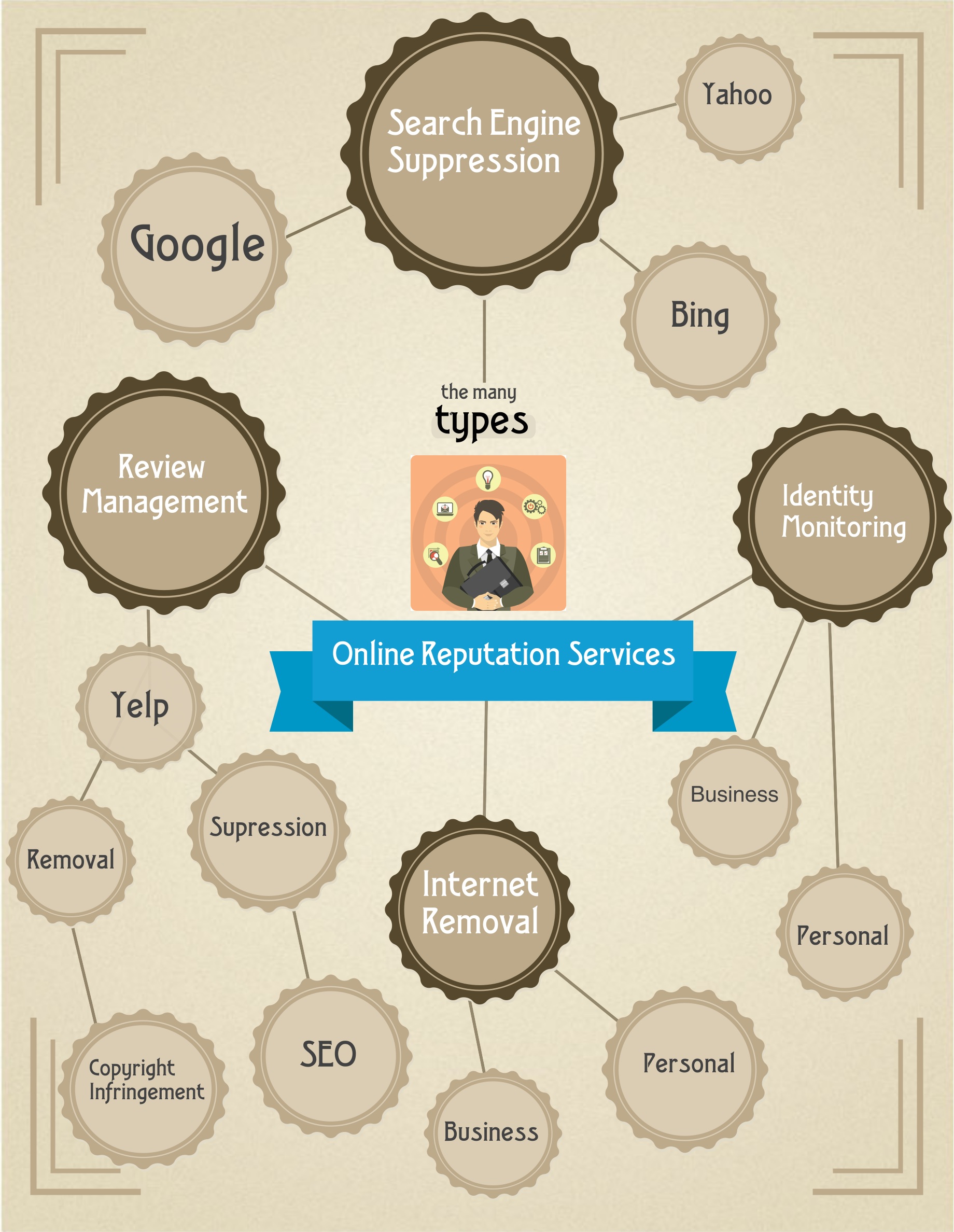Online Reputation Management Services Mindmap
The infographic below explores a few popular services offered by online reputation management companies. Choosing between different online reputation management services can sometimes be difficult. Developing a full understanding of the services helps make an educated decision when picking the ORM services that will work best for you.
Table of Contents
Types of Online Reputation Management Services
Review Management Services
Case 1: A business with bad online reviews
If its negative reviews on a site like Yelp that are causing damage to your online then your choice is quite simple; you need review management. Review management, however, comes in several forms. Some review management campaigns require search engine suppression while others cases can be fixed by removing negative reviews and/or acquiring more positive reviews from real customers.
Removal Services
Case 2: An individual or business has been slandered online
In many online defamation cases online reputation management services are all that are needed to get the content taken down. While certain legal provisions protect webmasters whom refuse to take down defamatory content, most of the time online reputation companies are able to remove negative information from the internet.
Search Engine Suppression via Reverse SEO
Case 3: A Government website published an negative article about a person or business
News articles, legal documents, etc. published on government websites are notoriously difficult for online reputation management companies to get rid of. Staying within legal boundaries, which all companies are strongly advised to do, government publications (those actually published on .gov sites and not taken from such sites and republished elsewhere) are seldom removed.
In cases like this, where a piece of negative information cannot be all-together removed from a website, allowing it to then be removed from search engines and the internet entirely, an alternative course of action is required – Search Engine Suppression. Search engine suppression involves the creation, publication and promotion of positive, reputation enhancing content. In the process of promoting the content a technique known as Reverse SEO. To understand Reverse SEO and its role in online reputation management a very brief intro to standard SEO is necessary.
Standard SEO aims to identify certain web pages and rank these pages on the top of Google results for a certain set of keywords and, by doing so, increase the web pages search visibility and the amount of visitors it receives through organic traffic, Reverse SEO aim identifies certain problematic web pages, often containing negative or defamatory content, and push these pages as far back on search engine results as possible.
In most cases getting these, what we in the industry refer to as, negative assets past page 3 or 4 is generally considered a job well done, especially in the difficult case of a government site publication. In easier cases, online reputation management companies are often able to get negative information pushed back to page eight to ten, and even beyond. Not that that matters, given that credible studies show only a small fraction of search engine users go beyond the first page of Google when searching for information about something or somebody online.


